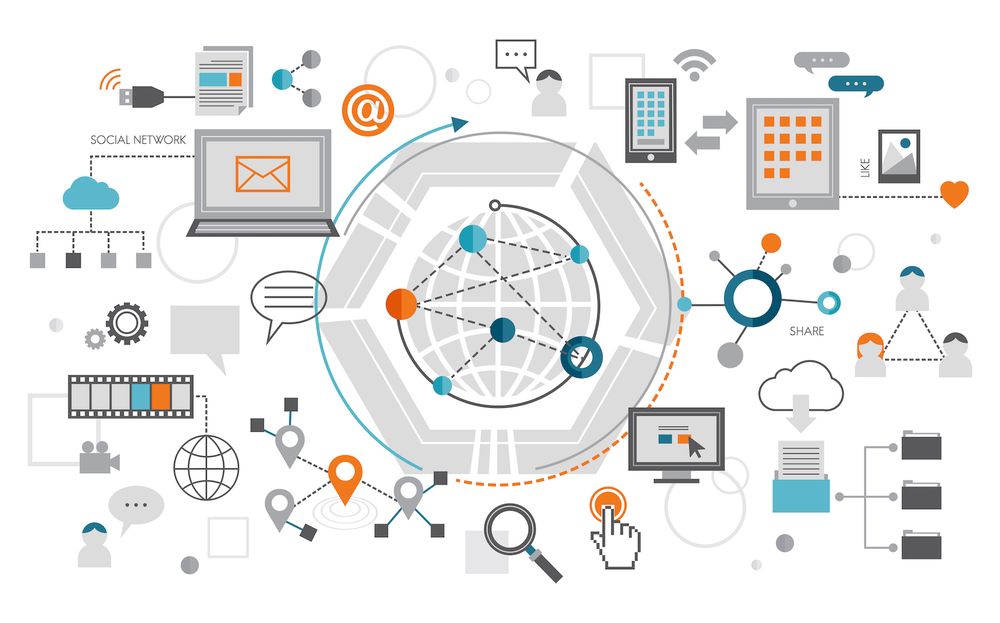Can SaaS Companies Afford to Ignore VAT and Sales Taxes? -
One thing I've discovered while working is that it's common to SaaS as well as software firms to disregard transaction-related tax (sales taxes tax, VAT, GST etc. ).
And I get it.
Sales taxes, VAT, and GST are complex, confusing and are not the things IT leaders would like to invest their time.

But also, you should consider that delaying tax-related transactions has risks well beyond paying some back taxes at some time in the near future.
In one of my chats with the Director of Global Tax Rachel Harding, one of the most knowledgeable people I have on the subject She told me:
- 40% interest and penalties she's seen software companies accrue in the event of ignoring taxes on sales in the state.
- Multi-million dollar valuation adjustments from historical sales tax noncompliance during acquisition due diligence.
Plus many plus.
In answer to our own question: No, you shouldn't ignore sales, VAT, and GST tax.
In this article in this piece, we will discuss the five main things SaaS businesses need to know regarding taxes. A lot of this information comes from my discussions with Rachel. Below, you'll be able to stream two of our conversations to hear more.
Five Factors SaaS Companies Need to Understand About Sales Taxes
1. Sales, VAT, and GST Taxes can affect SaaS Values
In the time that Rachel was on the mergers and acquisitions tax team for small software companies, she was able to observe million-dollar acquisition price changes as a result of tax noncompliance.
"If you're planning to make any form of ownership change, whether it's a majority or minor investment, they want to look into your company," Rachel explained. "They are going to examine all of your procedures, like do you have a handle on where your products are tax-deductible? Are you watching these rules in collecting, remitting and paying taxes? Are you compliant? Since if you're not, the buyer will want you to fix it prior to purchasing itor dock the purchase price."
2. If You've done it right There's no reason to owe anything Additional
"If you do it right, technically, it's net-zero for you," Rachel explained.
The sales tax is a consumptive tax -- a tax on the consumer, not your company. It shouldn't be something you're having to pay out of pocket. However, it's the responsibility of you to to collect sales tax on your buyer's behalf, and then remit it to the appropriate government agency. The buyer is responsible, but a seller's obligation.
"It's when you're doing things wrong that you'll end up with an expense, and a liability on your balance sheet. Feasibly, you're not going to assess sales tax two years after the tax was due. Then it's paid for out of pocket."
3. Consumption Taxes Calculated based on the location of the Buyer, not the Seller.
Taxes on sales are a bit complicated (especially in places like those in the U.S.), but generally, what you need to remember is that sales taxes are collected where the benefit of the item is consumed (aka the place where your customer is located). The tax isn't dependent on where you are or the place of the headquarters for your business.
In reality, the most meaningful data for sourcing sales is the billing as well as the computer's IP address. Like the title suggests, SaaS is taxed the same way as products, but not services and therefore only 20 of 45 U.S. states with sales tax systems actually tax SaaS. In the year 2018, if you've got sufficient taxable sales within a zone that exceeds the threshold, you will be legally considered to be an economic connection (a huge shout-out to South Dakota v. Wayfair for the idea! ).
A sales threshold is the number of sales within a certain area before having to submit taxes. Each tax region (whether it's a territory, territorial, state or a country-wide level) has unique ways of defining a threshold.
4. The Tax Laws and Regulations have Significantly changed in the last 10 Ten
Taxes on sales, VAT and various other taxation related to transactions have been reformed in the past ten years. Certain adjustments are more crucial than others, and they have altered the landscape entirely.
2015: EU requires VAT collection from Software companies that are not EU-based.
1 January 2015 on the 1st of January, 2015, the EU has begun requiring software providers to collect and pay VAT according to the location of the purchaser and not on the location of the business or its employees.
The VAT rates are determined by the country, meaning the country is responsible for keeping up with the changes in these rates at a country level.

2018: U.S. Affirms That States May Collect Sales Taxes From Non-Resident Businesses
In 2018 in 2018, the U.S. Supreme Court ruled that states may charge sales tax on purchases from out-of-state sellers (including online sellers), even if the seller is not located in an actual presence in the taxing state ( South Dakota v. Wayfair, Inc.). (A.k.a. the reason we are writing this article since now nonresidents and small businesses need to know about sales tax and its application.)
In the U.S., sales tax rules vary state by state. Florida and California don't require the collection of sales tax for SaaS subscriptions. However, New York and Pennsylvania do.
In 2020, Massachusetts reclassified SaaS fees to "personal tangible property" meaning SaaS subscriptions are now subject to sales taxes within the state.
In our conversations, Rachel offers other examples of how tax laws are evolving for SaaS enterprises around the world:
"We see, everywhere across the world, nations adopting rules that target non-resident businesses providing digital goods as well as services. Some will have a threshold of sales, some of them say every dollar is taxable."
5. Global Consumption Taxes Continue to Get More Complicated
The new tax laws are getting passed which directly impact SaaS. In the near future, in various all over the world, SaaS companies running digital platforms may be required to disclose every seller that uses their platform.
How come tax laws have become more complicated?
Nations are aware of the loss of tax revenue on digital sales that software companies aren't disclosing.
This is why they're attempting to find new ways to trace the flow of money in their state or country and enforce collecting.
The Four Ways SaaS Companies Can Manage Sales Taxes and VAT
Then how can SaaS businesses determine all the taxes they need to be withheld and pay all over the world?
There are four approaches that we have observed SaaS companies employ to satisfy their tax obligations related to transactions:
1. Don't Pay Attention
As we've described in this piece, delaying taxes on sales is a popular practice -- but one that could make your business liable for decades of unpaid taxes or fees and penalties. The days where this approach can work is shrinking. As online commerce continues to increase, so too is the motivation and capacity to regulate it.
2. Do It Themselves
Making your taxes yourself can be a great option for companies that have the capacity to do efficiently with an internal team.
It's just not as straightforward as plugging an automatic tax tool to the sales system you use.
SaaS businesses also have to consider:
- Ensure that your information are safe and easy to access.
- Learning about what's tax-deductible and what charges to be charged.
- Monitoring tax thresholds to know when you'll have to pay taxes and submit tax return.
- Remitting the correct amounts and filing returns on time in all tax authorities where you have an obligation. This could be for a month either quarterly, monthly, or annual.
- Be aware of the latest tax law and rules.
- Responding to notices and inquiries by Tax authorities. Is it phishing or are they a legal matter?
This could be difficult for a finance department without technical expertise and cause resentment and increased turnover.
3. Employ an accounting firm
If you contract out your tax preparation as a result, you'll have fewer internal resources needed, but it's going to cost more. Instead of a custom strategy, hiring an accounting firm usually means that they'll adopt a cautious approach and ensure compliance to the maximum extent regardless of whether you would prefer something more customized.
It's an insight that only an in-house tax expert can provide -- one that requires understanding the business, its strategies, tax legislation, and how they all intersect.
4. Utilize the services of a Merchant of Record (MoR) and Outsource the Liability
As a company, we are the official merchant for all transactions on your site and are responsible for collecting and remitting taxes on behalf of you. It doesn't matter if you're trying to deal with reduced tax rates, customized taxation, tax-exempt transactions B2B or B2C -- everything is managed by us.
The merchant of record is in your corner should there are tax audits or questions that are raised. If an audit happens, we intervene and take the lead to ensure that you concentrate on building and expanding your SaaS business.
What's the most effective solution for Your Company?
It's possible that this all seems too overwhelming, but the worst choice is not to take action.
In the words of Rachel put it, "I can never promise that you'll never be audited. But what can I can promise is that small actions taken now will help you prepare for a far brighter prospects in the future."
To figure out what's best for your business, she recommends assessing your capabilities and options.
"It's all about knowing your business you operate, the footprint of your business, tax law (duh) as well as the risk you're willing to take on."
Watch my full interviews with Rachel Harding
Part One: The Reasons SaaS Companies Can't Afford to ignore Sales Taxes
Part Two: are the stricter Tax Laws will Mean for SaaS

